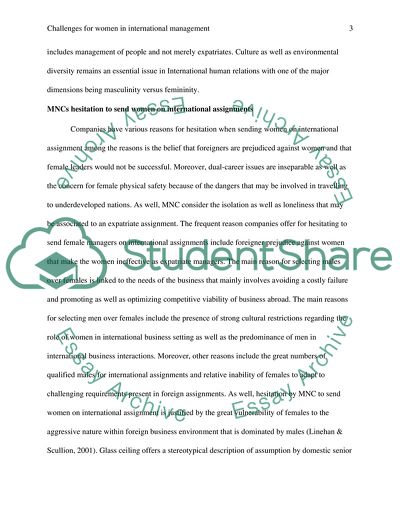Cite this document
(What are the particular challenges facing women expatriates working Essay, n.d.)
What are the particular challenges facing women expatriates working Essay. https://studentshare.org/human-resources/1812142-what-are-the-particular-challenges-facing-women-expatriates-working-for-mncs-what-if-anything-should-multinationals-do-to-amend-their-hr-policies-and-practices-to-encourage-more-women-to-pursue-an-international-career
What are the particular challenges facing women expatriates working Essay. https://studentshare.org/human-resources/1812142-what-are-the-particular-challenges-facing-women-expatriates-working-for-mncs-what-if-anything-should-multinationals-do-to-amend-their-hr-policies-and-practices-to-encourage-more-women-to-pursue-an-international-career
(What Are the Particular Challenges Facing Women Expatriates Working Essay)
What Are the Particular Challenges Facing Women Expatriates Working Essay. https://studentshare.org/human-resources/1812142-what-are-the-particular-challenges-facing-women-expatriates-working-for-mncs-what-if-anything-should-multinationals-do-to-amend-their-hr-policies-and-practices-to-encourage-more-women-to-pursue-an-international-career.
What Are the Particular Challenges Facing Women Expatriates Working Essay. https://studentshare.org/human-resources/1812142-what-are-the-particular-challenges-facing-women-expatriates-working-for-mncs-what-if-anything-should-multinationals-do-to-amend-their-hr-policies-and-practices-to-encourage-more-women-to-pursue-an-international-career.
“What Are the Particular Challenges Facing Women Expatriates Working Essay”. https://studentshare.org/human-resources/1812142-what-are-the-particular-challenges-facing-women-expatriates-working-for-mncs-what-if-anything-should-multinationals-do-to-amend-their-hr-policies-and-practices-to-encourage-more-women-to-pursue-an-international-career.


